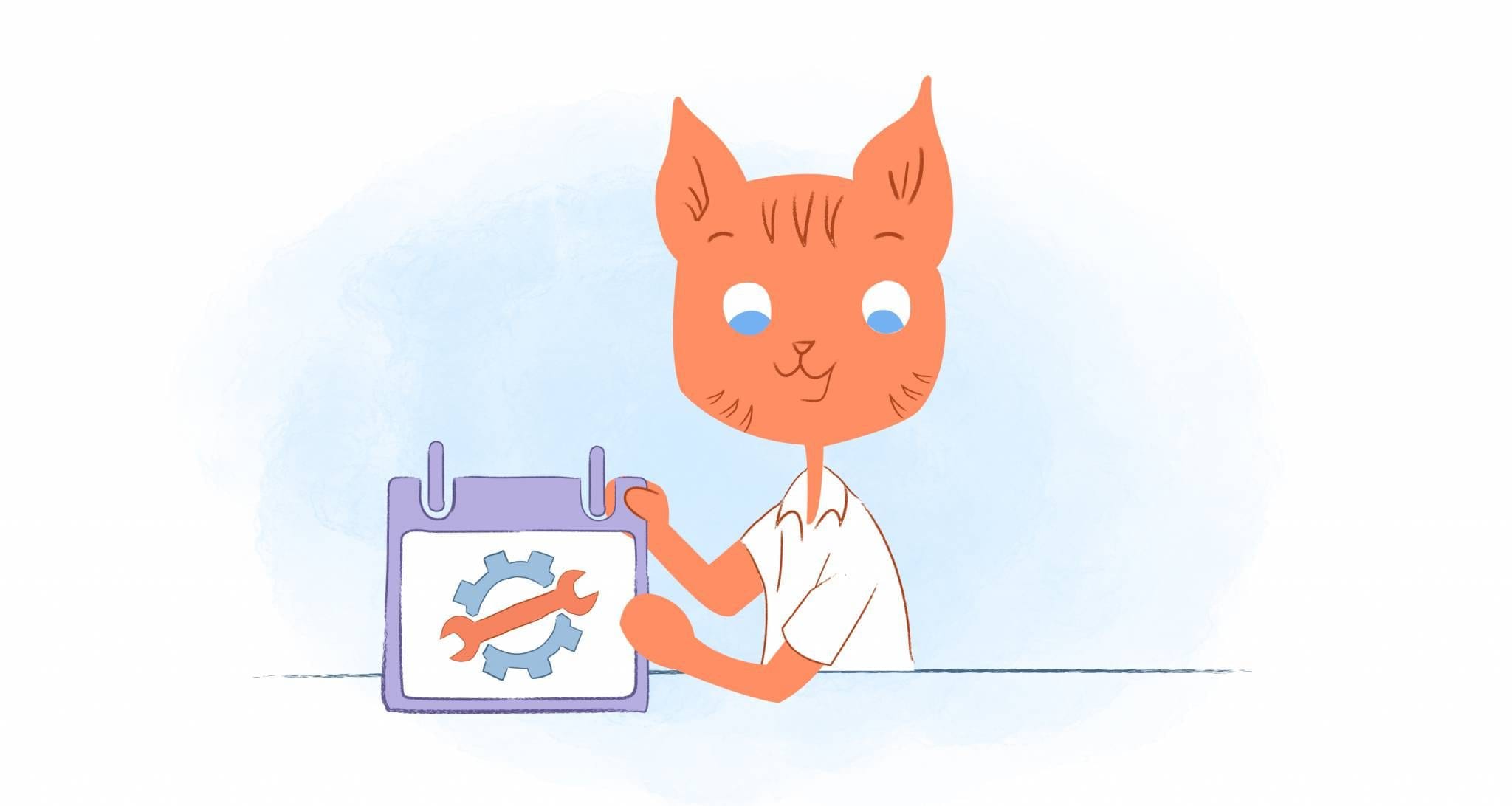

It’s not easy launching a startup. What, with overcoming obstacles like finding your niche, getting your finances in order, and working with partners. Oh yeah. You also have to worry about building your brand, marketing, and recruiting and retaining top talent. That’s a lot for anyone to take on.
But, one area that tends to get overlooked is productivity, which often gets confused with efficiency.
“While efficiency means doing more with less, wrote JotForm Founder and CEO Aytekin Tank for Entrepreneur. Productivity, on the other hand, “is about doing more with the same” while still pursuing quality. “After all, who cares whether you cross four extra tasks off your to-do list, if those activities don’t move the needle for your business?” asks Tank. “An effective morning routine or work schedule should help you to do more of what really matters,” he adds. “That’s why I believe founders and CEOs should focus on productivity, not efficiency.”
Additionally, when you focus on productivity, you’ll be able to finish what you start, boost morale, and achieve your goals. Ultimately, that will make your startup a success.
With that in mind, here are 10 major hurdles for startups to overcome so that they’ll be more productive.
1. Inefficient time management.
Despite the fact that time is your most valuable resource, it’s still astounding that so many founders don’t use it effectively. There is a multitude of reasons why this is the case. But, I think it boils down to the fact that they’re wasting too much time on time-wasting activities. For example, couldn’t your delegate or outsource your bookkeeping responsibilities or use automation and machine learning for customer service inquires and scheduling?
Freeing up your schedule of less important tasks and the things that you don’t enjoy doing, allow you to spend more time on what you love and do best. Moreover, it gives you the chance to learn and attend to your health and well-being.
That’s a crash course in time management, I know. But, here are some other time management tips startup founders should try:
- Find out when you’re most productive and schedule your important tasks then.
- Chunk up your week by doing similar tasks on the same day.
- Establish new habits and strategies like the Pomodoro Technique, Mind Mapping, and Completion Bias.
- Monotasking instead of multitasking.
- Identifying common distractions and finding ways to avoid them.
And, most importantly, keep it simple. Relying on too many complicated strategies or tools can be overwhelming and counterproductive. If all you need is your Google Calendar to keep you in-check, then you do you.
2. Productivity tools aren’t being used correctly.
You’re probably tired of hearing it. But, it’s true. There really is an app for that. And, that can be a wonderful thing if you want to improve communication, collaboration, planning, and task management.
But, at the same time, haven’t we become too reliant on productivity tools? Again, I have nothing against them. It’s just that we forgot that these tools are here to help us and not solve all of our problems.
Before building up an arsenal of productivity tools, filter your search to the ones that improve your skills or fill an organizational gap. Or, in other words, use the tools that will work best for you. For example, a lot of people rave about tools like Freedom that can block distractions. But, if you have enough willpower and don’t need assistance in this area, then why spend the time learning and using it?
3. Keeping up with demand is impossible.
“While this isn’t necessarily a bad problem to have, it can definitely cause problems for your business,” writes Chalmers Brown, CTO and Co-Founder of Due.com. “Just as you would prepare for the worst, you should also prepare for the outcome you are working toward — growth.”
“In this case, if you can’t keep up with production due to lack of resources or manpower to service demand you may be in serious trouble,” he explains.
“Make sure you have a well-defined plan for growth,” suggests Chalmers. “If you’re just launching your business, make sure you set clear and reasonable expectations.” An example of this would be if you have a limited amount of your product. If so, “make sure your customers know there may be delays if supplies run out.”
Additionally, “you should pay attention to surges in demand, like during the holiday season,” adds Chalmers. “A surge in demand should never be your biggest issue.” And, if it is, it could create bottlenecks that prevent you from being as productive as you should be.
4. Lack of planning.
Someone much wiser then I once said, “if you fail to prepare, prepare to fail.” As a founder, that probably means creating a business plan and taking into account things like sales, hiring, funding, scaling, and preparing for the unexpected.
However, it also involves planning. After all, as Angela Ruth perfectly put it, “productivity doesn’t happen. You need to make a plan.” And, here are a couple of ways to get you there.
- Make the choice to be productive, not busy. At the minimum, prioritize your tasks, block out distractions, and be proactive instead of reactive.
- Think 168 hours, not 24. Find out how you’re spending your time and eliminate time-wasting activities. You could also create theme days and set an intention for the week.
- Harness the power of KPIs. Monitor your KPIs to make sure that you’re achieving your goals.
- Fight off decision fatigue. Preserve your mental energy by spending less time on unimportant decisions. For instance, prep your lunch for the week so that you don’t have to make this decision every day.
5. Organizational culture is in disarray.
“So, you want a productive day, but it’s not possible because of your working environment, notes,” Dragan Sutevski, Founder and CEO of Sutevski Consulting. Since you have an open-door policy, people can come and go as they please. And, because you’ve made yourself so available, people will email or call you “for every possible problem.”
“These are only the fraction of possible distractions that will decrease your productivity level,” Dragen writes. “They are the results of the organizational culture that you have built in the past and is still active in your company.”
Unfortunately, this problem is this won’t just interfere with your productivity, “but also the productivity of your whole company.”
How can you change your organizational culture?” Dragen suggests your “spread responsibilities, and decision making among your team members and ensure that your culture will make all your team members accountable for their decisions and work they are doing.”
I’d also add that you should create a more positive work environment. You can do this in a variety of ways. But, you can use your values and priorities to guide you in the right direction. Most importantly, you should encourage everyone to speak up and remove any toxins from your organization to keep morale and collaboration healthy.
6. Lack of respect.
Whether you’re a startup, mom and pop operation, or Fortune 500 company, it’s imperative that you treat your team with respect. If not, you can expect poor morale, unfinished tasks, a lack of collaboration, and lots of wasted time.
How can you respect your employees? Well, Amanda Abella recommends focusing on the following areas:
- Don’t be a jerk. “If you want your employees to stick around, treat them with dignity,” she writes. “This means you can’t have unrealistic expectations, you must compensate them fairly and you need to be flexible when emergencies come up.”
- Prioritize health. Encourage your team to take time for self-care. You could also offer gym memberships, healthy snacks, flex schedules, and access to mental health resources.
- Don’t waste people’s time. Don’t arrive late for meetings or keep attendees longer then the time allotted. Get back to them in a timely manner. And, don’t overload their work capacity or message them non-stop during off-hours.
Amanda also suggests that you respect yourself. “Keep an eye on the nasty tendency to be way too hard on yourself,” writes Amanda. “Take care of yourself and be a stellar example to the people who work for you.”
7. Autonomy isn’t being encouraged.
“The best way to encourage productivity and creativity in your team is for the managers (and founders!) to step back,” wrote SINC Founder Sam Dolbel. “Let your team manage their tasks freely and independently; you trusted them enough to join your start-up, so you should be able to give them a task and let them fly with it.”
Encouraging ownership drives motivation. And, “you’ll find that the more ownership someone is able to take of their role, the better job they will do at it.”
Of course, this is a tough pill for entrepreneurs to swallow. But, you can start small, like letting employees work remotely 2 days a week. You could also let them choose how they want to work and share their unique skills and talents. If you’ve clearly stated your expectations, then you shouldn’t have much to worry about.
8. No one is able to stay on track.
Tim Hyer, Founder of Getable, told Business News Daily that the biggest lesson he’s learned is the importance of focus. By nature, a startup is extremely resource-constrained,” he said. “The last thing it needs is to be spread even thinner than it already is.”
“When working on a brand new problem that no one has attempted to solve before, the possibilities are limitless — as are the distractions,” Hyer added.
Ty Morse, the CEO of Songwhale agrees. “The early years of a startup can be chaotic and desperate,” Morse wrote for Yahoo! Small Business. “Even a great idea needs capital to get off the ground.” As a result, you say “‘yes’ to anything and everything because you need clients; you need investment; you need to turn your idea into an actual business.”
“Too quickly you’ll take on too many things,” Morse adds. And, this “disrupts your focus.”
If you want to stay on track, Morse recommends:
- Putting together a business model that works best for you.
- Only sticking to one or two things that you excel at.
- Firing your bad clients.
As for focusing on your daily activities, Deanna Ritchie in a previous Calendar article suggests that you:
- Build your concentration like a muscle. “The ‘Pomodoro Method’ is a great technique to help you get started,” Denna writes. “Yes, it’s the same calendar and productivity hack where around 45 minutes straight and then take a 15-minute break.” But, since “you’re gradually building your focus muscles here, cut that time way back.”
- Meditate. It’s a fast and effective way to keep you in the present and “bounce back from distractions and tame stress reactions.”
- Optimize your environment. Maintain a clean and clutter-free workspace.
- Stop multitasking. Seriously, it doesn’t work. Do one task at a time.
- Manage your energy, not your time. Work during the hours when you have the most energy and concentration.
9. Success has a different definition for your employees.
If you’re no longer flying solo, then this is an important thing to remember when you want to empathize with or rally your team. Why? Because entrepreneurs and employees have different definitions of success.
Case in point, work-life balance.
For employees, balance an important factor that determines if they’ll join a stay with a company. But, it’s not for entrepreneurs since balance isn’t feasible. At the same time, founders also need breaks. So, you may want to focus on seasons instead. That means that if you’re on the verge of a product launch, you may put in 12 hour days. But, after the launch, you could disappear for a two-weeks if that’s your prerogative.
10. The workspace hasn’t been adapted to various needs.
Your workspace plays a huge role in how productive you and your team members are. If you aren’t comfortable and working from a filthy desk in a dimly lit room, do you honestly think you’ll be all that productive?
At the same time, we all have our personal preferences. Some people enjoy working in an office where they can hear background noise like typing and chatter. Others want absolute silence.
While you may not be able to accommodate everyone’s needs, you can allow them to decorate their workspaces however they want or listen to headphones. You could make certain areas of your office as silent as a library or permit people to work wherever they’re most productive.
Also, don’t forget to provide them with ergonomic furniture, a standing desk, and all the tools and resources needed to get their work done.











John Rampton
John’s goal in life is to make people’s lives much more productive. Upping productivity allows us to spend more time doing the things we enjoy most. John was recently recognized by Entrepreneur Magazine as being one of the top marketers in the World. John is co-founder and CEO of Calendar.